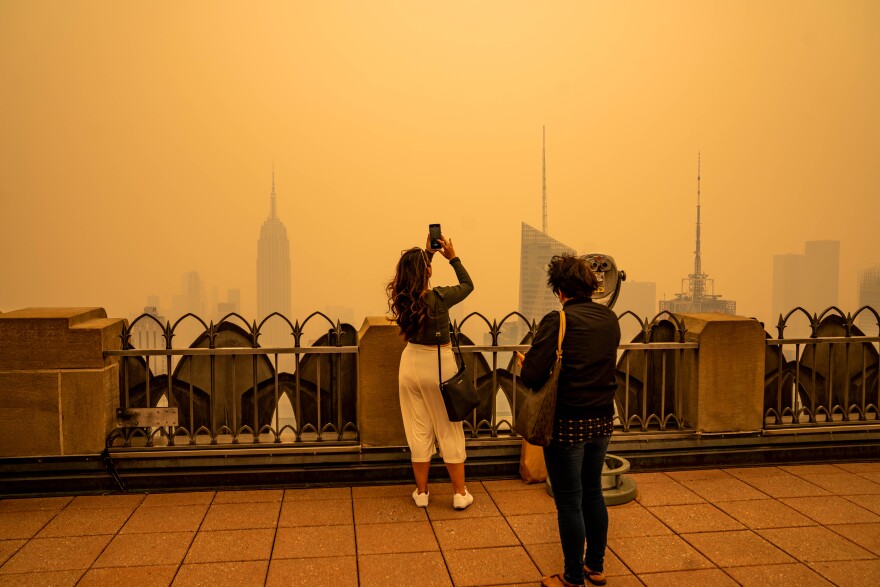New research shows air quality gains in the U.S. have been cut by wildfire smoke, leading scientists to sound the alarm for change if the world wants to breathe clean air in the future.
“The gestalt is that wildfires in the U.S. are increasing in terms of frequency, intensity, duration, acres burned, and that's negatively impacting air quality in the United States,” said Ann Marie Carlton, a professor of chemistry at the University of California Irvine.
Carlton explained that when wildfires burn, they release a tiny particulate matter called PM 2.5. It contributes to air pollution, as well as increases health risks like cancer and heart attacks.
“You can breathe (those particles) in very deeply to these little sacs at the end of your lungs called the alveoli, and that's where the blood-air exchange happens,” Carlton said. “That's what makes this sized particle such a health hazard.”
Researchers from Stanford and Harvard found between 2000 and 2016, average annual PM 2.5 levels dropped in most states – largely due in part to advances made under the Clean Air Act. But since 2016, wildfire smoke has affected PM 2.5 trends in three-fourths of the United States. Additionally, that smoke has reversed 25% of the air quality progress made since 2000.
“Living here in Colorado, we know how much we're experiencing smoke throughout the summer, and actually throughout the year, both locally and regionally,” said Christine Wiedinmyer, the associate director of science for the Cooperative Institute for Research in Environmental Sciences at the University of Colorado Boulder. “This was not a surprise.”
The research – which was published in the journal Nature this month – only recorded data from 2000 to 2022, so it did not include data on the intense fires in Canada and Maui last summer.
Climate change is part of the issue, but federal air quality rules are, too. The Environmental Protection Agency allows air quality limits to fluctuate during what they call “exceptional events,” like wildfire. Many experts have proven that most of the times when EPA limits are exceeded, it is due to wildfires.
“State and local entities can apply for this exceptional event and say, ‘Hey, it's not our fault,’” Carlton said. “Just from my own perspective, if we know that fires are increasing in terms of frequency and intensity and amount of impact on air quality, then it's not really an exceptional event anymore.”
This comes as experts from the United Nations Environmental Programme report that the number of wildfires globally will increase by 50% by the end of the century. Finding a solution to this increase is not as simple as one might think.
“It’s not like it's the tailpipe out of our cars or an industrial plant where we can just implement a new technology and turn it off,” Wiedinmyer said. “Wildfires are a lot more challenging because they're influenced by a lot of natural systems.”
For those interested in looking at local air quality levels during a wildfire, visit AirNow.gov for current data or look for more tips at the American Lung Association’s wildfire page.
This story was produced by the Mountain West News Bureau, a collaboration between Wyoming Public Media, Nevada Public Radio, Boise State Public Radio in Idaho, KUNR in Nevada, KUNC in Colorado and KANW in New Mexico, with support from affiliate stations across the region. Funding for the Mountain West News Bureau is provided in part by the Corporation for Public Broadcasting.







